Nutritional supplements for ear and balance health
When my ENT and GP told me a few months ago, that I had Menieres Disease, I immediately started taking all the supplements in the John of Ohio Regimen for Menieres. Although it can take time to work, and doesn’t work for everyone, some people claimed it had healed them so I gave it a go.
Over time, and as my diagnosis changed to autoimmune inner ear disease (though Menieres is also now considered to be an autoimmune disease), so to did my supplement regime. I still take quite a few of the JOH regime but not all.
These are the supplements I now take. The overall aim is to support my body to detoxify, rebalance (particularly my immune system) and heal and prevent further damage to my inner ears.
Magnesium
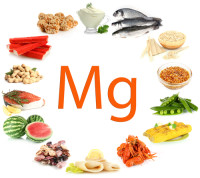 Magnesium is an essential nutrient used by every organ in the body and is crucial for the nervous and muscular system and in the production of energy. One of the main reasons I’ve started taking it is because there’s evidence to suggest it plays a role in our hearing health.
Magnesium is an essential nutrient used by every organ in the body and is crucial for the nervous and muscular system and in the production of energy. One of the main reasons I’ve started taking it is because there’s evidence to suggest it plays a role in our hearing health.
Studies have discovered a link between Magnesium deficiency and increased susceptibility to hearing loss. It also seems
that Magnesium may have a protective effect against noise induced hearing loss and ototoxic medications and also in preventing sensorineural hearing loss. The Mayo Clinic have also found that Magnesium may play a role in reducing the perception of tinnitus
Overall, evidence suggests that there is potential for magnesium supplementation to be used as a treatment for noise-induced and idiopathic sudden sensorineural hearing loss in adults though more research is necessary.
I think its important to make sure our supplements are high quality, are well tolerated and absorbed by the body and are as natural and pure as possible. After much research I decided to take Magnesium Citrate from the brand Natural Calm. The magnesium is derived from natural minerals in the Pacific Ocean and mixed with citric acid (derived from Non-GMO sugar beets from Belgium). As magnesium is a relaxant its best to take it in the evening or before bed, though if suffer from nervous conditions or stress you could take it in the daytime to.
Tip: A lovely way to get your Magnesium intake is from an Epsom Salt (Magnesium Sulfate) bath. Simply throw in your salts (1 cup to 1 kg) and soak away for as long as you can. Add a couple of drops of Lavender Oil for a truly relaxing bedtime bath.
Vitamin D
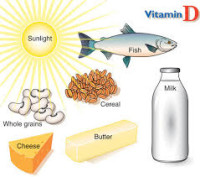
Research has found that Vitamin D levels are significantly lower in people with autoimmune disease and it also finds that people who take supplemental vitamin D have lower rates of autoimmune disease and fewer markers of inflammation. That maybe why some autoimmune conditions such as Multiple Sclerosis and Type 1 Diabetes are more prevalent the further you live from the equator.
Studies also link Vitamin D deficiency to otosclerosis (abnormal bone growth in the middle ear), unexplained and bilateral cochlear deafness and sensorineural hearing loss. This is possibly due to effects on calcium metabolism and circulation in the cochlear.
This information, combined with the fact that we in the UK rarely get to see any sunshine thanks to the thick wall of clouds above us the whole time, leads me to think it is of benefit to supplement, at least on the 360 days of the year when there is no sunshine upon us.
I take NatureWise Vitamin D3 which contain the non-synthetic version Cholecalciferol D3 at a good dose (5000 iu). They are organic and free of binders though the capsule is not vegetarian (tut tut NatureWise). Do avoid the synthetic version D2.
Vitamin C

I got quite carried away looking at the different forms of Vitamin C as there is lots of information out there critiquing the different forms of Vitamin C supplement. Second best to high dose IV Vitamin C which is used in natural cancer treatments, Liposomal Vitamin C is said to have the highest absorption in the body. I used Lipolife Gold – Liposomal Vitamin C and never had a laxative effect at high dose which tends to show its all being retained. However it is pretty expensive so when I needed to replace it I decided to go for Solgar Bio-Ascorbate (Buffered Vitamin C Complex). This also provides the much needed Calcium to balance out the Vitamin D and Magnesium supplements above (all 3 work in tandem together).
I did try food form vitamin C supplements which are the most natural way to get your Vitamin C. But I just find the dosages are just no way near whats needed for a therapeutic effect. It seems a little pointless as I think I’d get more Vitamin C from one of my big salads than from what can be fit inside a capsule of food form vitamin C tablets.
Citrus Bioflavenoids
I continue to take the Citrus bioflavenoids I purchased for the John of Ohio regimen, mostly because they are very important in enhancing the action of Vitamin C but also because they are an antioxidant and are good for treating allergies, viruses and other inflammatory conditions.
Some studies have shown they can reduce tinnitus. The research was done in the 1960’s and doesn’t seem to have been replicated since so I can’t give it too much weight but it’s a nice additional and possible benefit.
Vitamin B Complex
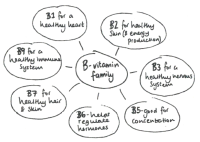
Whilst each particular b vitamin plays a specific role in the body its important to ensure you take a B-Complex rather than any individual component. If you want to take additional quantities of any one vitamin you can take it as well, but its not adviseable to take it alone.
I take Thorne B Complex Number 5 because it contains the active forms of Folate (5-Methyltetrahydrofolate) and B12 (Methylcobalmin & Adenosylcobalamin) as naturally found in the body. These don’t need further conversion by the liver and are therefore easier on the body. It also provides a good range of B’s in the quantities I like. The ‘number 5’ refers to the fact that this particular formulation contains higher quantities of B5. This is preferable if you are need additional adrenal support – in other words if you have been under significant stress or have other symptoms of adrenal exhaustion.
It may all seem a bit complicated but we don’t want to throw any old tablet into our bodies without making sure it is really going to do what we want it to do and isn’t placing undue burden on our already weakened systems. There are plenty of businesses out there trying to sell us something so I always think its best to double check what they tell me.
Omega 3 Fatty Acids (Fish Oils)
Omega 3 fatty acids play an important role in reducing inflammation and modulating the immune system. Whilst it would be much nicer to use a non-animal Omega 3 source such as Flaxseed / Linseed Oil, this takes some effort for the body to break down. For that reason I tend to go with a source which is already broken down such as Fish or Krill Oils – particularly if you aren’t in the best health.
I’m concerned about heavy metal concentrations because there doesn’t seem to be any real regulation of fish oil products and most fish are heavily contaminated with heavy metals and PCBs. It was important to me to find the purest possible quality fish oil I could so I went for International Fish Oil Standards (IFOS) oils. The best value IFOS certified product I could find in the UK at the time was Carlson Labs, Super Omega-3 Gems Fish Oil Concentrate.
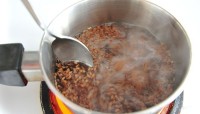
Tip: You can also use Flax seeds (also called Linseeds) in your diet as a source of Omega 3 fatty acids. I throw a spoonful into my smoothies, grind them or make linseed tea with them. Linseed tea, is made by soaking the linseeds over night and then boiling them in the morning. It makes a gloopy, gelly consistency tea which, whilst not the most appetizing thing in the world I’ve ever tasted, is packed full of fatty acids and is an absolute treat for the intestines. Click on the picture for a link to the recipe.
MSN – Sulphur
MSM is an abbreviation of methylsulfonylmethane, an organic form of sulfur. Sulphur is found in every cell in the body and its supplemented in the diet for its remarkable therapeutic properties such as tissue healing, anti-inflammatory, pain-relieving and detoxification. Its also a vital component in skin hair and nails and David Wolfe even calls it the beautifying compound. Since I definitely need a dose of extra beautification given my early onset elderlyness (aka – walking stick, dizzy, deaf and half blind when walking) I decided this one was a must!
MSN is of particular benefit to those with joint problems, inflammation, pain, migraines, allergies…really the list is endless and it probably would be of benefit to everyone.
MSN is best taken alongside Vitamin C. It’s best to start with a low dose and gradually build up. This is because of the detoxification effect. Too much too soon can cause a laxative effect, headaches or some have reported being over-stimulated (i.e. anxiety and palpitations). I take 1 teaspoon twice per day and am gradually increasing with an aim to take 1 tablespoon 3 times per day, if I can handle it.
Warning: the taste is vile so go for capsules if this might be a problem!
Probiotics
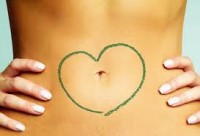
In naturopathic and functional medicine, one of the primary aims is to restore digestive health. Keeping a healthy balance of good bacteria in the gut is essential for good digestion but also has anti-inflammatory and immune strengthening effects.
I take Natures Sunshine Probiotic 11 because I found them to provide a good selection of 11 different strains of bacteria, and in a high dose of 12 billion. Probiotics are best taken on an empty stomach around 30 mins before food. This gives them more of a chance of surviving the harsh digestive enzymes which are produced in response to food.
Cultured and fermented foods such as kefir, miso, sauerkraut, tempeh, natural yoghurt and umeboshe contain these benficial bacteria and should be incorporated into the diet as much as possible. Despite all these wonderful foods my stomach is still not looking like her in the picture but I will keep trying!
Fulvic Minerals
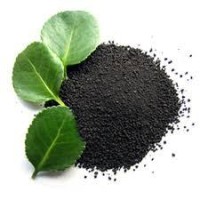
Fulvic acid has cleansing, detoxifying, antioxidant, anti-viral and fungicidal properties. It can boost energy levels, improve circulation and oxygenation and enhance endurance. Additionally, the compound helps control inflammation, regulate hormones, boost the immune system and promote brain function.
For me, the minerals support the cleansing aspect of my detox and bring in the nutrients I need to support my paleo-autoimmune diet.
It was a bit of a minefield finding a good quality UK source and I would have liked to see more chemical analysis of the products available but couldn’t get my hands on anything remotely useful. In the end I took a chance and went with the brand Ancient Purity. I can’t vouch for the purity of their product though as didn’t have much information to base my decision on.
Fulvic minerals should be taken 30 mins before or 2 hours after food or medication and shouldn’t be taken with chlorinated water. Filtered water is okay and if you don’t have a filter, you can leave tap water to stand for a minimum of 30 mins and the chlorine will evaporate from it.
Chlorella and Spirulina
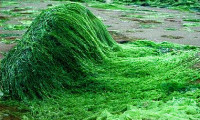
I wanted to take them both as each has beneficial properties. I’d also heard that they taste disgusting so decided a tablet form would be best. I take Rainforest Foods Combined Chlorella and Spirulina which is certified organic and vegan. Makes sure the Chlorella you go for has had its cell wall broken as this makes it more digestable.
Digestive Enzymes
I find that my stomach is often quite bloated from my Paleo Auto Immune diet because I’m eating increased quantities of raw foods and meat in my diet. I take digestive enzymes to help with my digestion now and then whenever I remember to take them. I take Source Naturals Daily Essential Enzymes in Vegetarian Capsules, 500 mg because they provide a broad spectrum enzymes at a good dosage. I also wanted to avoid some of the herbs sometimes added to digestive enzyme formulations as I’m not sure of their effect on the immune system.
NB: If you have an autoimmune condition you should avoid immune-stimulating herbs – for instance Echnicacea, Astralagus, Olive Leaf, Cats Claw. But it’s okay to take herbs and spices which are adaptogenic i.e. Reishi, Ashwagandha, Milk Thistle, Tumeric, Cumin. Either way, do your checks before taking your herbs.
Zinc

Zinc is important for many functions in the body; the production of energy, maintenance of hormone levels, protection against cancer and cell division.
The cochlear and the retina of the eye contain the highest concentration of zinc in the body. This has led researchers to believe that deficiency may play a role in inner ear problems such as tinnitus and hearing loss. Studies have shown that when hearing loss was accompanied by low zinc levels, normalizing these levels improved hearing in almost 25% of the affected patients. One study showed beneficial effects of zinc supplementation in the treatment of some cases of tinnitus. Research results indicate that zinc deficiencies increase the vulnerability of the cochlea to damage associated with normal aging. When a zinc supplement was given, one-third of the elderly patients showed marked improvement in tinnitus caused by presbycusis and sensorineural hearing loss. Yet another human study concluded that zinc is involved in the generation of tinnitus, especially in patients whose hearing is relatively normal.
It was also shown that animals fed a low zinc diet partially lost their ability to hear, strengthening the conclusion that zinc is involved in the inner ear somehow.
I will be looking for a chelated form of zinc as these are best absorbed by the body. Zinc Orotate looks the best but is super expensive so I will settle on Zinc gluconate or citrate. Zinc is best taken an hour before or 2 hours after a meal and ideally away from Calcium and Iron.

- Vinpocetene (Periwinkle Herb) – Derived from the seeds of the periwinkle plant, vinpocetine has been noted in several studies to improve hearing function and symptoms of tinnitus. I’ve stopped taking this for a while now, simply because there is a limit to how many supplements I can take in one day. But I may resume taking it at some point.It is said to be good for memory enhancement, enhancing brain cell energy function be beneficial to the delicate hearing cells of the inner ear.
- Ginkgo Biloba – Ginkgo Biloba is found to be at least as effective as Betahistine which is commonly prescribed in the UK for dizziness and vertigo. It increases blood flow to the brain, may help reduce symptoms of vertigo.
- Vertigoheel – Vertigoheel is a homeopathic preparation for vertigo which has been found in studies to be effective in the reduction of symptoms of vertigo. It is on par with Ginko Biloboa. Some say it works well for their Menieres and also Tinnitus. Personally for me it didn’t do a great deal but this may also be because I have total bilateral vestibular failure so the damage is done.
- Olive Leaf Extract – I was taking this as its a powerful anti-viral but I discovered recently it’s an immune strengthener – not a good idea for someone with autoimmune disease.
I’m sure this isn’t the end of the list and my regime will change as I discover more wonder supplements…watch this space! I’d love to hear from you if you know of any effective pills potions and remedies for hearing loss, vestibular failure or autoimmune disease. Don’t be shy, please get in touch!
Some reference sources:
- The effects of magnesium supplementation on sensorineural hearing damage: A critical review of the literature
- Magnesium and Hearing Loss
- Magnesium and hearing
- Antioxidant vitamins and magnesium and the risk of hearing loss in the US general population.
- Oral magnesium intake reduces permanent hearing loss induced by noise exposure
- Evaluation of the protective effect of magnesium on amikacin ototoxicity by electrophysiologic tests in guinea pigs
- Phase 2 study examining magnesium-dependent tinnitus.
- Vitamin D deficiency and deafness
- Evaluation of vitamin D metabolism in patients with bilateral sensorineural hearing loss
- Dietary vitamin C supplementation reduces noise-induced hearing loss in guinea pigs.
- Immune-enhancing role of vitamin C and zinc and effect on clinical conditions.
- Antioxidant vitamins and magnesium and the risk of hearing loss in the US general population.
- Age-related hearing loss, vitamin B-12, and folate in elderly women
- Folic acid deficiency induces premature hearing loss through mechanisms involving cochlear oxidative stress and impairment of homocysteine metabolism.
- Is Your B-Complex Vitamin Doing More Harm Than Good?
- The role of plasma melatonin and vitamins C and B12 in the development of idiopathic tinnitus in the elderly.
- The role of zinc in the treatment of tinnitus.
- The serum zinc level in patients with tinnitus and the effect of zinc treatment
- Vitamin B12 deficiency in patients with chronic-tinnitus and noise-induced hearing loss.
- Vitamin D-deficient diet rescues hearing loss in Klotho mice.
- Vitamin D Deficiency in E.N.T. Patients
- Zinc deficiency and tinnitus.
- The homeopathic preparation Vertigoheel versus Ginkgo biloba in the treatment of vertigo in an elderly population: a double-blinded, randomized, controlled clinical trial.
- Treatment of Vertigo: A Randomized, Double-Blind Trial Comparing Efficacy and Safety of Ginkgo biloba Extract EGb 761 and Betahistine
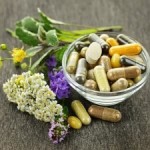
Plan B: Medical Medium Healing Protocol - Healing the Dizzies
January 7, 2016 @ 2:25 am
[…] the first 7 months of this illness, I was religiously applying my knowledge of naturopathy, supplementation and herbs and the Paleo Auto-immune Diet. But after a while I began getting a bit lazy with it. I had […]